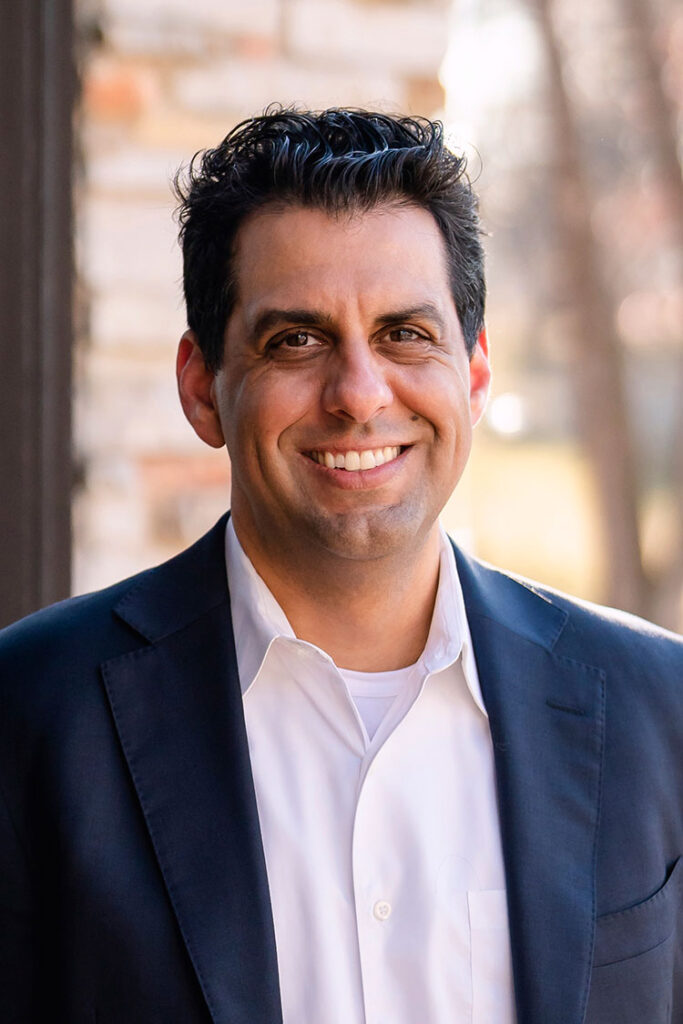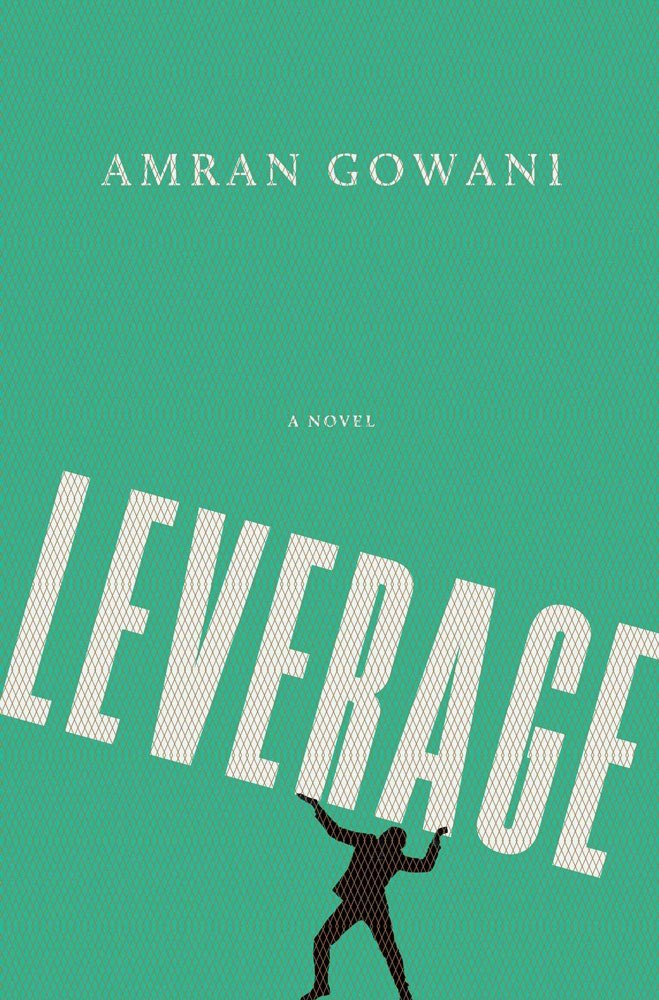
Hilarious and scathing, Chicago author Amran Gowani’s debut novel Leverage is a thriller that pits its quick-witted underdog protagonist Ali Jafar against the rigged system of finance in which, until recently, he’d been excelling. Irreverent and biting, the book’s targets — greed, elitism, and bigotry to name a few — are immaculately chosen and ripped apart with hysterical aplomb. Gowani skewers casino capitalism, racism, and the egregiousness of hedge fund managers and CEOs who view other human beings only as property to be leveraged to amass yet more assets. With snappy dialogue, plot twists galore, and a self-aware main character with a work ethic that just won’t quit, Gowani delivers a caper for the ages and a celebration of the fact that — corny though it may sound — “none of us is as strong as all of us.” Leverage will be released by Atria Books on August 19.
How much did you draw on your own experiences working in finance to write this?
Unfortunately, quite a bit. My stint on Wall Street coincided with a speculative boom and spectacular bust in my sector, which was called specialty pharmaceuticals. These corporate ghouls were too evil to commit the pedestrian crimes seen throughout the traditional pharmaceutical industry and elevated their games by engaging in accounting fraud, financial engineering, exorbitant price gouging, and brazenly illegal — and ultimately lethal — marketing practices.
As a “sell-side” analyst, my job was to write research reports which spun those cynical business practices into attractive investment opportunities, and I watched hot money hedge funds and “long-term” investors ignore the all-too-obvious warning signs while hoping to make a quick buck. Obviously, it all came crashing down, and Wall Street’s cynicism, nihilism, and short-termism eventually inspired me to write Leverage.
Leverage is unsparing in its comic critique of the predatory nature of capitalism. For instance, you open with the defenestration deaths of a CEO and a CFO at the hands of a mob. How hard is it to be over-the-top and satirical in an era when real life is so routinely grotesque?
First of all, thank you for using “defenestration!” I deployed that imminently entertaining word in my early drafts but ended up revising for narrative efficiency.
Second, it’s very difficult to satirize the 21st century! In Leverage, every time I thought I was doing something too unbelievable, or too absurd, or too shocking, I’d skim the latest headlines in the Wall Street Journal and remind myself there was nothing more ridiculous than the real world. I’d then proceed to ratchet the lunacy in the novel up another notch.
When I envisioned the opening of the story and imagined a world where American citizens would be so apoplectic they’d resort to mob violence against the financial elite, I’d hoped the idea would serve as a wake-up call for the arbiters of neoliberalism. Alas, in the wake of the UnitedHealthcare debacle, it’s clear I was merely a few years ahead of our utterly debauched curve.
Many would consider going from Wall Street analyst to novelist to be a big switch. Why make the leap?
I certainly didn’t do it for the money, but I took the plunge because I wanted to say my piece about corporate corruption and casino capitalism, and I felt compelled to critique the surreal and disturbing experiences I’d both read about and seen firsthand.
My biggest strength as a writer is, I’m not a writer by training. I’m above all a problem solver, and I leveraged the skills I’d developed in my previous lives as an organic chemist and financial analyst to bulldoze my way into the world of fiction. For example, crafting a novel is akin to synthesizing a molecule, while querying literary agents is analogous to developing an investment pitch.
Any advice to other people seeking to pivot to fiction?
Fiction writers should possess three key attributes: a compulsion to create, a hypercompetitive streak, and an alternate form of compensation.
I write fiction because deep inside I always wanted to write fiction, and the more experiences I accumulated, the more I realized I’m a storyteller at heart. I secured a Big Five book deal because everyone told me it was too difficult — and I relish nothing more than proving people wrong. Finally, I’m afforded the extreme privilege of writing full-time because my exceptionally indulgent wife has a real job and finances my ludicrous literary lifestyle.
What writers are your biggest influences and who did you read to get in the zone to write Leverage?
Both classic (e.g., Joseph Heller, Aldous Huxley) and contemporary (e.g., Percival Everett, Carl Hiaasen) satirists have hugely influenced my worldview and writing style, but the author I’ve read most — and who taught me to create a rip-roaring plot — is John le Carré.
When my midlife crisis began, and I decided to write a novel, I’d been mainlining le Carré, from The Spy Who Came in from the Cold to the Karla Trilogy to The Night Manager. His books explore life’s gray zones, and they always feature wickedly propulsive plots without skimping on style or dumbing down prose.
I was also devouring nonfiction books such as Sheelah Kolhatkar’s Black Edge and John Carreyrou’s Bad Blood, which chronicled the malfeasance of Silicon Valley and Wall Street’s most nefarious actors. Put that together, mix in my uniquely diseased brain, and you’ve got a recipe for Leverage.



